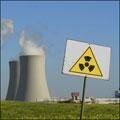Другие материалы рубрики «English»
-
 Belarus seeking up to $2 billion out of EurAsEC`s anti-crisis fund
Belarus seeking up to $2 billion out of EurAsEC`s anti-crisis fund
Belarus is seeking a loan of up to $2 billion out of the Eurasian Economic Community (EurAsEC)`s anti-crisis fund... -
 Belarus asks Russia for $9bn loan to build nuclear power plant
Belarus asks Russia for $9bn loan to build nuclear power plant
Belarus has asked Russia for a government loan of $9 billion for a period of 25 years for the construction of a nuclear power plant...
- Prosecutor demands six year in prison for Vasil Parfyankow
- Belarus plans to import 26 million tons of oil this year, says first deputy prime minister
- Visegrad Group condemns post-election crackdown in Belarus
- Speaker of US House of Representatives meets with Belarusian opposition activists
- OSCE Parliamentary Assembly to discuss closure of OSCE Office in Minsk
- Vice premier criticizes Samand cars assembled in Belarus
- Government falling behind plan to sell shares in new stock corporations, official says
- Books devoted to Belarusian writer Karatkevich presented at Minsk Book Fair
- Experts criticize trials of post-election protesters as falling short of fundamental standards
- Danish-born business professional Michael Bang arrives in Minsk to conduct seminar
English
German lawmakers condemn crackdown on Belarusian opposition
Bundestag, Germany’s lower house of parliament, condemned on February 10 what it called the Belarusian government’s crackdown on opposition and civil society after December’s presidential election, BelaPAN said.
 Four of the parliamentary house’s five factions shared calls for a strong-worded resolution on the situation in Belarus. Only the faction of the Left, which accounts for 12.2 percent of the seats in the house, did not join the chorus of criticism against Minsk.
Four of the parliamentary house’s five factions shared calls for a strong-worded resolution on the situation in Belarus. Only the faction of the Left, which accounts for 12.2 percent of the seats in the house, did not join the chorus of criticism against Minsk.
On Thursday, Bundestag discussed three draft resolutions, proposed by the ruling coalition of the Christian Democrats (CDU-CSU) and the Free Democrats, the Social Democrats and the Alliance’90/the Greens.
All of the drafts urged the German government to continue efforts to secure the release of detained Alyaksandr Lukashenka’s opponents, as well as described Belarus’ presidential election as neither free nor fair and condemned the violent dispersal of the December 19 post-election demonstration in Minsk as a sign of “utter disrespect for European values and rules by the government and President Lukashenka.”
The documents called for reviewing international organizations’ lending to Belarus and the country’s involvement in European Union programs, and suggested that Berlin avoid top-level contacts with Minsk until the release of all detained opposition figures.
The four Bundestag factions welcomed the EU’s decision to introduce travel and asset freeze sanctions targeting scores of Belarusian government officials, law enforcement officers, judges and journalists implicated in election fraud and the crackdown on the opposition.
The resolution proposed by the ruling coalition called for free Schengen visas for Belarusian citizens persecuted by the authorities on political motives, while the Social Democrats’ resolution suggested that all citizens of Belarus should be entitled to free EU visas. The resolution drawn up by the Alliance ‘90/The Greens called for the abolition of the visa requirement for Belarusians altogether.
Speaking in an interview with Germany’s magazine Spiegel ahead of the debate, Philipp Missfelder, a top member of the CDU-CSU faction, emphasized the need for tougher sanctions against the Belarusian government, in particular a ban on Belarusian petroleum products.
The German lawmaker also stressed that the EU should have a single stance on the situation in Belarus. “What matters most is that we should speak in a single voice,” he said. “Today Belarus for me is a litmus test of how much efficient the EU’s foreign policy is.”
He said that the EU must cooperate with the United States and Russia on the Belarus issue. “It’s important that Russia take part. Even if Russia and Europe don’t always share an opinion on Belarus’ development within the next 10 years, Moscow cannot ignore the situation in a neighboring country. The Kremlin cannot want to have a second North Korea in front of its door,” Mr. Missfelder said.
Lawmakers representing Germany, Poland and Russia are scheduled to meet in Kaliningrad on February 21 to discuss, among other matters, the situation in Belarus.




В настоящее время комментариев к этому материалу нет.
Вы можете стать первым, разместив свой комментарий в форме слева